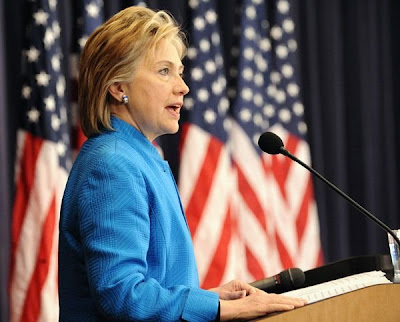 I am wrapping up a three week visit to Brazil that has included the two southern states of Parana and Santa Catarina and the cities of Sao Paulo and Rio de Janeiro. I lived in Rio for six years (and in Salvador da Bahia for 2) over a span of nearly 20 years and know Sao Paulo from numerous family visits, but had only been once to the southern states almost 20 years ago. The visit to Parana and Santa Catarina was part of a six month Globalization Seminar at Tidewater Community College, and I had the pleasure of being one of six faculty and six students who flew and bussed all around those states. As the city of Chesapeake, one of the seven cities of the Tidewater region in SE Virginia, is a sister city with Joinville, the most populous city in Santa Catarina, TCC decided to use that connection to hook up with the largest university in Joinville, called Univille, a semi-private school of about 8,000 students. We lectured along with Univille professors for groups of students up to about 200 each evening.
I am wrapping up a three week visit to Brazil that has included the two southern states of Parana and Santa Catarina and the cities of Sao Paulo and Rio de Janeiro. I lived in Rio for six years (and in Salvador da Bahia for 2) over a span of nearly 20 years and know Sao Paulo from numerous family visits, but had only been once to the southern states almost 20 years ago. The visit to Parana and Santa Catarina was part of a six month Globalization Seminar at Tidewater Community College, and I had the pleasure of being one of six faculty and six students who flew and bussed all around those states. As the city of Chesapeake, one of the seven cities of the Tidewater region in SE Virginia, is a sister city with Joinville, the most populous city in Santa Catarina, TCC decided to use that connection to hook up with the largest university in Joinville, called Univille, a semi-private school of about 8,000 students. We lectured along with Univille professors for groups of students up to about 200 each evening.
Before and after a program of about 4 days in Joinville, we also visited the cities of Curitiba (state capital of Parana) , Morretes and the port of Paranagua in Parana state, descending from Cutitiba to the coast aboard a a scenic train that runs through the Atlantic rain forest to the coast. As the TCC trip is under the international business program of the school, the visit included tours of the Port of Paranagua, Perini Business Park, a major industrial park in Joinville, the production complex of WEG, Brazil´s leading manufacturer of electric motors and transfomers, the Blumenau textile fair, a boat ride around the Bay of Babotinga and the port of Sao Francisco do Sul, and visits to the tourist city of Comboriu and Santa Catarina´s capital, Forianopolis.
As mentioned in my last posting, we met with the former mayor of Curitiba and governor of Parana state, Jaime Lerner, after visiting the city and seeing all the things he had done to improve it, laying the foundation for Curitiba to be considered the environmental capital of Brazil. (Jaime Lerner agreed to see us although his wife, Fani, was gravely ill. I found out only a few days later that she had passed away and sent condolences.)
Brazil. (Jaime Lerner agreed to see us although his wife, Fani, was gravely ill. I found out only a few days later that she had passed away and sent condolences.)
A primary conclusion of this trip is that Brazil has been globalized. (Actually, I took the name of this posting from a book here Brasil Globalizado, published last year with contributions from leading Brazilian thinkers and economists, which takes the position that Brazil has been on the path to globalization since 1990, but still has a long way to go in necessary reforms.) It is deeply involved in world trade and through a galloping information revolution, in world culture. I don´t want to cite the many statistics showing Brazil´s place in the world economy, because they are readily available. However, observing the immediate effects of globalization on a country that at one time, during most of the period I lived here, largely had its trade protected and suffered a gap between it and the world. Today, anything is available here, at a price of course often quite a bit higher than in the US. (The little figure of a stick man with the head of a globe, above, has been used on the wrappings of a kind of cracker, Biscoitos Globo, in both sweet and salty versions, sold only on Rio´s beaches for the past 70 years to the delight of little children and their parents, and older siblings.)
Brazil is much more wired than I have ever seen in the past, including on a visit only a year ago. This has given Brazilians a closer touch with the world. Everything now is accessible online (I was told a phone book is no longer printed because the info is online). Advertising and all kinds of services are being promoted online. Most hotels and public areas have wireless. Brazilians use cellphones and PDAs even more vigorously than Americans do.
There is something very global about Brazil´s culture today. The main TV soap opera playing now is called Road to the Indies (Caminho das Indias), a rather colorful portrayal of life and love that somehow crosses from Brazil to India (where everybody suddenly speaks Portuguese--which would be OK if it took place in Goa but it doesn´t). People here are fascinated with the rich texture of Indian upper class life, with flashbacks to Brazil. Another bit of evidence is the film Budapeste, based on the novel by Brazilian cultural figure (popular musician and now novelist) Chico Buraque de Hollanda. In this film, a Brazilian ghost writer finds himself in Budapest and decides to learn the most difficult language in the world (my paternal grandparents were Jews from Budapest) and is embroiled in efforts to ghost write in Hungarian, in addition to dealing with lovers in both Rio and Budapest. What all this means to me, is that Brazil is culturally engaged in the world. In the case of India, it reflects a Brazilian desire to be as dynamic as the Indians have been in moving their economy to be globally competitive (which most Brazilian products still are not), and perhaps to compare the talents of a Brazilian intellectual to the often crude ways of a former Communist Eastern European country. The ease with which the views of Budapest and Rio are flashed across the screen gives a sense of the closeness in time and space that marks postmodern globalization.
I should also mention that Green is really catching on here, a legacy of the 1992 Earth Summit in Rio but also with a lot of new energy coming from world culture and Brazil´s easy connection to nature. People talk Green better than they act Green, but it is a good beginning. (Watching a well heeled woman open up her car door while stopped in traffic and tossing out a pile of paper trash caused me teeth to gnash.)
Brazil is always Brazil, thank goodness. Today I was delighted by a scene as I walked and sat along the Calcadao, when they close off one lane of traffic along the Ipanema and Leblon beachfront on Sundays so people can walk, bicycle and skate freely along it. For some reason, everyone now has a dog, preferably a little dog. But one fellows large black lab decided to go directly to a coconut sitting on the curb next to a family whose very young daughter had only drunk about half of its milk, and started licking the hole at the top and draining off the delicious liquid. Everyone laughed. Then the dog picked up the coconut in its mouth, lower jaw in the hole, and walked off with it. 15 minutes later, the same dog walked by the other way, still clenching the coconut in his teeth. I would like to see that scene happen in the States!
A trip to Brazil would not be complete for me without going to at least one show of Brazilian Popular Music (MPB). In Sao Paulo, Yeda and I went with some cousins to see the Caymmi family, Danilo, Dori and Alice, sing songs of their father and grandfather the great Dorival Caymmi, who passed away last year. This concert was dedicated to Caymmi and his frind, Brazil´s greatest novelist, Jorge Amado, both from Bahia and both of whom I knew when I served in Salvador da Bahia as US consul. I have to admit that I had trouble holding back tears listening to some of the Caymmi songs that represent Bahia not just to me but to most Brazilians as well. It was a great concert and I hung around afterwards to meet the Caymmi family and congratulate them. As it turns out, Dori lives in Los Angeles, so even Bahian music has gone global.
As mentioned in my last posting, we met with the former mayor of Curitiba and governor of Parana state, Jaime Lerner, after visiting the city and seeing all the things he had done to improve it, laying the foundation for Curitiba to be considered the environmental capital of
 Brazil. (Jaime Lerner agreed to see us although his wife, Fani, was gravely ill. I found out only a few days later that she had passed away and sent condolences.)
Brazil. (Jaime Lerner agreed to see us although his wife, Fani, was gravely ill. I found out only a few days later that she had passed away and sent condolences.)A primary conclusion of this trip is that Brazil has been globalized. (Actually, I took the name of this posting from a book here Brasil Globalizado, published last year with contributions from leading Brazilian thinkers and economists, which takes the position that Brazil has been on the path to globalization since 1990, but still has a long way to go in necessary reforms.) It is deeply involved in world trade and through a galloping information revolution, in world culture. I don´t want to cite the many statistics showing Brazil´s place in the world economy, because they are readily available. However, observing the immediate effects of globalization on a country that at one time, during most of the period I lived here, largely had its trade protected and suffered a gap between it and the world. Today, anything is available here, at a price of course often quite a bit higher than in the US. (The little figure of a stick man with the head of a globe, above, has been used on the wrappings of a kind of cracker, Biscoitos Globo, in both sweet and salty versions, sold only on Rio´s beaches for the past 70 years to the delight of little children and their parents, and older siblings.)
Brazil is much more wired than I have ever seen in the past, including on a visit only a year ago. This has given Brazilians a closer touch with the world. Everything now is accessible online (I was told a phone book is no longer printed because the info is online). Advertising and all kinds of services are being promoted online. Most hotels and public areas have wireless. Brazilians use cellphones and PDAs even more vigorously than Americans do.
There is something very global about Brazil´s culture today. The main TV soap opera playing now is called Road to the Indies (Caminho das Indias), a rather colorful portrayal of life and love that somehow crosses from Brazil to India (where everybody suddenly speaks Portuguese--which would be OK if it took place in Goa but it doesn´t). People here are fascinated with the rich texture of Indian upper class life, with flashbacks to Brazil. Another bit of evidence is the film Budapeste, based on the novel by Brazilian cultural figure (popular musician and now novelist) Chico Buraque de Hollanda. In this film, a Brazilian ghost writer finds himself in Budapest and decides to learn the most difficult language in the world (my paternal grandparents were Jews from Budapest) and is embroiled in efforts to ghost write in Hungarian, in addition to dealing with lovers in both Rio and Budapest. What all this means to me, is that Brazil is culturally engaged in the world. In the case of India, it reflects a Brazilian desire to be as dynamic as the Indians have been in moving their economy to be globally competitive (which most Brazilian products still are not), and perhaps to compare the talents of a Brazilian intellectual to the often crude ways of a former Communist Eastern European country. The ease with which the views of Budapest and Rio are flashed across the screen gives a sense of the closeness in time and space that marks postmodern globalization.
I should also mention that Green is really catching on here, a legacy of the 1992 Earth Summit in Rio but also with a lot of new energy coming from world culture and Brazil´s easy connection to nature. People talk Green better than they act Green, but it is a good beginning. (Watching a well heeled woman open up her car door while stopped in traffic and tossing out a pile of paper trash caused me teeth to gnash.)
Brazil is always Brazil, thank goodness. Today I was delighted by a scene as I walked and sat along the Calcadao, when they close off one lane of traffic along the Ipanema and Leblon beachfront on Sundays so people can walk, bicycle and skate freely along it. For some reason, everyone now has a dog, preferably a little dog. But one fellows large black lab decided to go directly to a coconut sitting on the curb next to a family whose very young daughter had only drunk about half of its milk, and started licking the hole at the top and draining off the delicious liquid. Everyone laughed. Then the dog picked up the coconut in its mouth, lower jaw in the hole, and walked off with it. 15 minutes later, the same dog walked by the other way, still clenching the coconut in his teeth. I would like to see that scene happen in the States!
A trip to Brazil would not be complete for me without going to at least one show of Brazilian Popular Music (MPB). In Sao Paulo, Yeda and I went with some cousins to see the Caymmi family, Danilo, Dori and Alice, sing songs of their father and grandfather the great Dorival Caymmi, who passed away last year. This concert was dedicated to Caymmi and his frind, Brazil´s greatest novelist, Jorge Amado, both from Bahia and both of whom I knew when I served in Salvador da Bahia as US consul. I have to admit that I had trouble holding back tears listening to some of the Caymmi songs that represent Bahia not just to me but to most Brazilians as well. It was a great concert and I hung around afterwards to meet the Caymmi family and congratulate them. As it turns out, Dori lives in Los Angeles, so even Bahian music has gone global.







.bmp)